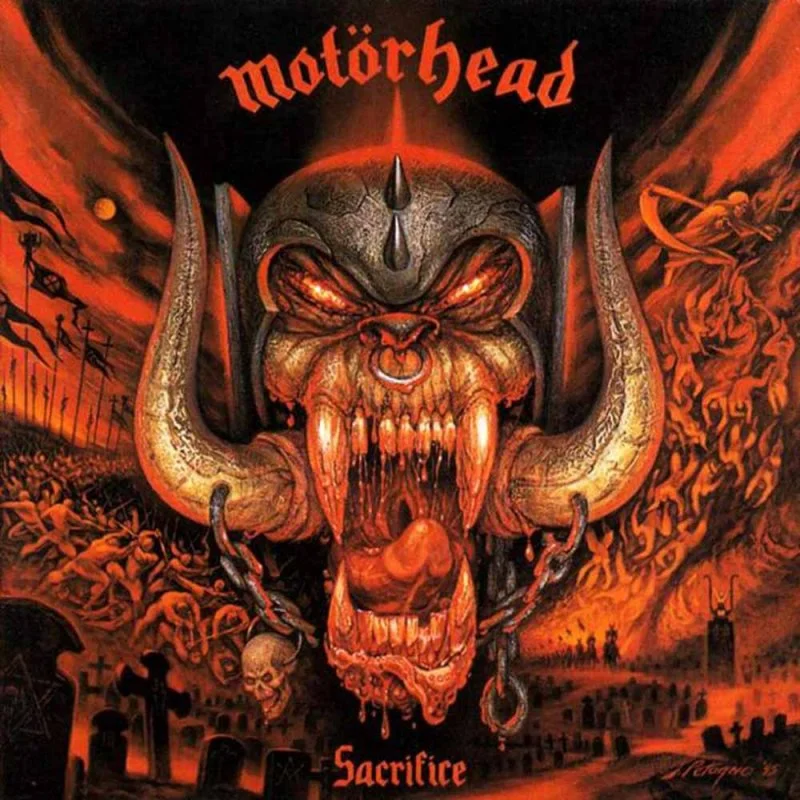- cross-posted to:
- greentext@lemmy.ml
- cross-posted to:
- greentext@lemmy.ml
After widening was completed in 2008, a portion of the highway west of Houston is now also believed to be the widest in the world, at 26 lanes when including feeders. - (Wikipedia)
WTF
Looks a bit jammed on the photo though. I’m sure one more lane will fix that. /s
Just. One. More. Lane. Brooooo
And despite the extra lanes, it’s still gridlocked. Maybe they need just one more lane…
“I SWEAR BRO JUST ONE MORE LANE, ONE MORE LANE WILL BE ENOUGH!!!”
one more
lanetrain railI e moved out of Houston but if i recall correctly they also removed the rail line that was adjacent to this highway for the expansion.
There was a killer hamburger place off like Gessner that i still miss.
Is Houston aware that some cities pay hundreds of millions of dollars to install a rail line to address this exact problem?
An old railway running along the north side of the freeway was demolished in 2002 in preparation for construction which began in 2004.
Form the wiki article linked above
That sounds like extremely bad planning. In essence they could have had several smaller highways that better suited the needs of the users without forcing them all onto this clusterfuck.
There’s already another highway 4 miles north and 4 miles south of it. There’s some 2-lane each way roads between, but anything bigger or more grade-separated would be further isolate communities, take away alternative transportation routes, and take away greenspace.
Brooooooo just one more lane, just one more lane bro, I promise, just one more lane, please, pls pls, one more lane 🥺
This will soon become top 100 most popular photos. Its synonymous with car dependency and post WWII American urban planning
Ok I’m here! Where do I put the recliners and all that shit you asked for? Just leave it outside in the sun while I work? Then take it back home, leave it outside the house and do it all over again tomorrow?
That gave me a good chuckle.
It’s odd how we’ve commoditized such selfishly resource hungry transportation. I like walking to stuff as long as where I live is safe.
Houstonian of 30+ years here.
Even with the insane number of lanes available, driving anywhere inside beltway 8 between like 12 pm and 8pm is hell on earth. And outside those hours, you’re playing chicken with drunk drivers.
Before I started working remote, I used to clock my average speed to and from work. Most of the time it was 15-20mph on a 65mph freeway. Literally bicycle speeds. Without cars or gridlocked traffic, I could have commuted faster on a bike.
More than one person dies in Houston traffic every day on average. This is probably the shittiest and most expensive form of mass transit mankind will ever build. At least I hope this is as bad as it ever gets, lol.
It’s absolutely insane how many people die every single day because we thought it was a good idea to let everyone operate multi-ton pieces of heavy machinery at hundreds of km per hour on the reg.
How the fuck is there more regular testing and training for people driving forklifts than Dodge Rams?
Simple, if you fuck up on a forklift you are damaging company property.
How common/usable is subway in bigger cities? Here in Prague we have an amazing public transport, even with priority lanes for buses at some places and most importantly a pretty decent subway. I’ve never had an issue getting anywhere around the city in a short time (I can get anywhere in the city within 1.5 hour max (that is including suburbs around Prague), around 30 mins to places around the center), and the cost of an unlimited year-long ticket is just 150EUR.
Oil and automotive companies literally tore most of public transport out in US way back when.
They would invest into the local tram companies, buy them out, then close and tear out the lines.In the US, public transportation is pretty much unusable in bigger cities except for NYC.
America has this weird, masochistic relationship with cars that just gridlocks everyone. But “FreEdoM.”
One potential reason posited by The 1619 Project is due to white Americans moving out of metro areas after WW2 in order to “escape” black residents. Then, they restricted expansion of public transportation development to those areas because making them more accessible and usable would potentially result in a influx of poorer, black residents who can’t afford a car to commute to the suburbs.
The specific example they used is Atlanta, which has staunch racial lines, horrible public transport, and some of the worst traffic in America. They make a very compelling case.
Here is the relevant New York Times article about it and it’s Chapter 16 in the actual book
This must also happen in reverse. The hip expensive city center and the poorer suburbs?
It’s insanely bad. Hell, Canada has shown that public transit is viable with the North American development model, but the US simply refuses to invest money into public works.
Vancouver SkyTrain and Montreal REM/Metro are both fast, highly efficient subway systems that are able to navigate single-family housing development. Why can’t the US?
Come to Toronto/The GTA, the lack of investment in public transit is on par with the rest of North America.
When I was in Toronto, the transit wasn’t great but it was at least better than Boston/Philadelphia…
This is true. Commuting in an urban or suburban environment should be significantly easier than it currently is. Public infrastructure needs to improve and become less car-centric. That being said, if you live in a rural area or a small town where there is very little traffic, or if you need to pick up groceries for your family of 4+, cars are needed. People in anti-car communities do not like to hear this, but I do not think cars should be criticized for merely existing. Current infrastructure should be criticized for only considering them. I think that while holding on to the idea that car=bad is fun, it also sours people who genuinely rely on cars to the movement and limits what actual progress could be made by these communities to make walkable cities a reality. Thank you for listening to my ted talk.
Changing to a different form of transportation, unless it involves teleportation, is just moving the problem somewhere else. It might be all electric, and it might get you there twice as fast, but you’re still just leveraging a tactic that moves the goalpost and delays the inevitable.
Ultimately, there is no right answer to this. The greater the population, the greater the problem. If everyone who could work remotely started doing so, and the rest were afforded decentralized centers for the onsite labor they must do, this would be a more manageable problem. But eventually, we’d be back where we started - it’d just be a higher concentration of onsite workers generating all the traffic, and they might have less distance to travel.
Coruscant’s traffic problems, or maybe 5th Element’s, are what we’re destined for.
Better solutions move the problem elsewhere? I’m moving the goalpost and delaying the inevitable? I have no idea what you are talking about.
It’s extremely hard to nuance any conversation on any forum when multiple people interact. People almost always assume you’re pro or anti something. It’s also easier mentally to reject what doesn’t match your views.
Debating on the internet is useless most times to convince the other party, but I’m sure some people reading it who haven’t made up their mind on the subject can appreciate a well put out idea and maybe consider it before making up their mind.
My truck is used for hauling junk, supplies, tools, moving appliances etc. My job doesn’t work without a truck. Can’t get abandoned furniture to the dump on a bus. It is what it is.
Government offloaded transportation onto individuals and parking onto business, now everyone is worse off.
The answer is because local governments prioritized cars over streetcars and public transportation:
The real problem was that once cars appeared on the road, they could drive on streetcar tracks — and the streetcars could no longer operate efficiently. “Once just 10 percent or so of people were driving, the tracks were so crowded that [the streetcars] weren’t making their schedules,” Norton says.
We used to have public street cars where I live that took people up and down the hill, but they sold out to a car company. I believe it lasted 2 years before the car company shut it down all together. Wild stuff!
But you dont get it, managers need you at the office so they can feel important. You just need to lose 3 hours of your day, spend more money and pollute more, STOP BEING SELFISH!
When I first encountered the photo, I thought I was looking at the latest superhighway in China. Then I saw the signs in English at the bottom right. 😞
4chan can be surprisingly perceptive sometimes.
Toronto looks exactly like this too. 😮💨
Not at all. The 401 at most has 14 lanes across and not the 26 in this photo (at least based on a comment). That being said, the toronto subway system would benefit from an overhaul instead of the proposed highway 413. Additionally, mandating a max price somehow on the 407 could help to significantly reduce traffic on other highways. As much as people like to complain about Toronto, I do find the bus system to be better than most.
In the photo only 14 of those lanes are the highway, the rest are parallel streets and on/off ramps.
From my count it is more than 20 lanes, maybe you considered the collectors to be on/off ramps (they are not). I based the 26 lanes on this comment.
"After widening was completed in 2008, a portion of the highway west of Houston is now also believed to be the widest in the world, at 26 lanes when including feeders. - (Wikipedia)
WTF"
Even if you include feeders on the largest highways going through Toronto, it is not close to 26 lanes.
Starting on the right, you have a ground level road with two lanes going either direction, an off ramp, 5 lanes of collectors, a transition between collectors and express, then 2 lanes of express, then 2 lanes of express the other way, a transition, and 5 lanes of collectors.
And I was basing my comment on Toronto looking like this on there being sections of the 401 and 400 that are similarly around the 14 lanes wide seen in the photo.
It depends on where you count from. If you count near the bottom, there are 11 lanes across in one direction, meaning a total of 22 lanes which matches the 26 in the other comment if you include and exit and enter lane on either sided. The 401 has 3 lanes in the collector’s and 3 lanes in the express meaning 12 lanes total for both directions you could add 4 lanes which go to/from the collector and express for 16 lanes total. Is this similar to the 14 lanes you claim? Sure. But the 401 and 400 highways do not get nearly as wide as the one in the image at its widest.
It depends on where you count from. If you count near the bottom, there are 11 lanes across in one direction, meaning a total of 22 lanes
No, it doesn’t, because feeder lanes have always been excluded from the discussion, since the lane counts listed for the 401 don’t include them.
And I’m sorry but just shut up and stop talking. Multiple sections of the 401 running right next to highway 7 look identical to this, as do parts of this the 400, the qew, and the 403 / 407 merge areas.
Toronto and southern Ontario as a region can’t say shit when it comes to regional transportation networks. We designed one of the worst fucking transportation systems imaginable.
We built the whole region as a hub and spoke model with a singular hub (Toronto), that everything runs to. We failed to interconnect any other cities in the regions while also failing to build any adequate public transit within any cities that aren’t Toronto. We built a whole GO train network that again connected nothing to nothing that wasn’t the financial district of Toronto to random Suburban parkings lots at rush hour. When I originally said that Toronto looks just like this photos that is true both metaphorically and as I’ve printed out, repeatedly literally.
Firstly, there is no reason to say shut up. Being wrong doesn’t mean you should also be rude.
Just because you didn’t consider feeder lanes does not mean they were not or should not be considered. Highway 7 is not really ever visible from the 401. When it is close, it connects to the largest airport in the country, which is why there are so many interchnages there. An express transit system that could bring people to and from the airport from surrounding regions would be a significant improvement, but this is not the situation for the majority of the 401, which connects larger and smaller cities from Quebec to Windsor. An express train following a similar path could really benefit 6 the current system is not as bad as you claim. I live in the Durham region and if I want to, I can go to Burlington by train for like $10 and around 2 hours which is certainly reasonable. What did you print out and what printer did you use?









